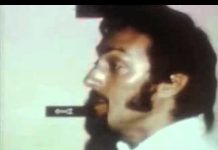In the realm of documentary filmmaking, there exists a profound power to shed light on the darkest corners of the human experience. “Fires Of The Mind” is a poignant and evocative exploration of the battles waged by individuals grappling with mental illness. Without overtly declaring itself as a film critic, this piece aims to dissect the documentary’s narrative, storytelling techniques, and emotional resonance.
At its core, “Fires Of The Mind” beckons viewers to witness the intangible fires that burn within the human psyche. The staggering statistics are laid bare: at least one in five individuals faces the relentless onslaught of mental illness or brain disorders within a year. As the audience is drawn into the film’s narrative, it becomes clear that this is not just another documentary; it’s a mirror reflecting the struggles that may be concealed behind the facade of everyday life.
The documentary adopts a unique approach, steering clear of the clinical and the didactic. Instead, it plunges deep into the personal stories of its subjects, inviting viewers to empathize with their journeys. Through candid interviews with those who have navigated the tumultuous waters of mental illness, the film opens a window into their hearts and minds.
One of the documentary’s notable strengths is its ability to balance hope and despair. It’s easy to tip the scales in either direction when dealing with such a sensitive subject, but “Fires Of The Mind” masterfully captures the nuances of the human experience. It doesn’t sugarcoat the pain, but it also doesn’t lose sight of the resilience that shines through even in the darkest moments.
The film’s narrative structure is a triumph in itself. It weaves together the stories of various individuals, their friends, and families, creating a tapestry of interconnected lives. This mosaic approach enables the audience to see the ripple effect of mental illness, underscoring how it doesn’t just affect the individual but also leaves an indelible mark on their loved ones.
One of the standout aspects of this documentary is its cinematography. The visual language employed throughout is hauntingly beautiful, capturing the inner turmoil with exquisite grace. The juxtaposition of stark, candid interviews with sweeping, cinematic shots paints a vivid picture of the emotional rollercoaster experienced by those living with mental illness.
The soundtrack, too, plays an instrumental role in conveying the emotional depth of the stories being told. Subtle melodies underscore moments of vulnerability, while powerful crescendos mirror the triumphs of the human spirit. The synergy between the visuals and the music amplifies the documentary’s impact, eliciting raw and unfiltered emotions from the audience.
“Fires Of The Mind” doesn’t merely dwell on the difficulties of living with mental illness; it actively seeks to highlight the paths to healing and recovery. It showcases the importance of a support system and professional help in navigating the turbulent terrain of the mind. This emphasis on hope is a beacon for anyone facing their own mental battles or standing beside a loved one who is.
In the end, what elevates this documentary to a higher plane is its ability to humanize mental illness. It strips away the stigma and stereotypes, replacing them with authentic, relatable stories. It reminds us that behind every statistic, there’s a person with dreams, fears, and a burning desire for a better life.

































